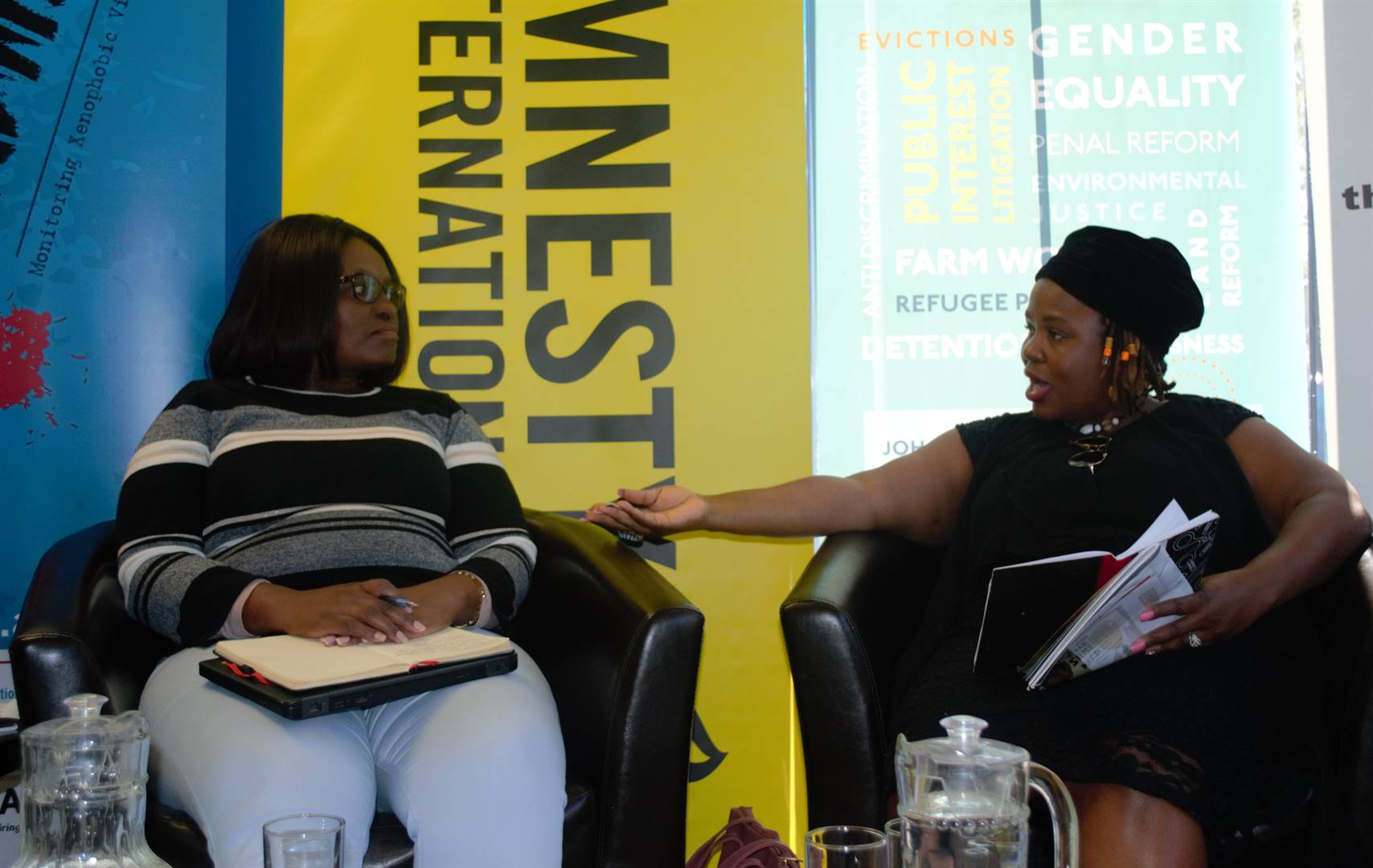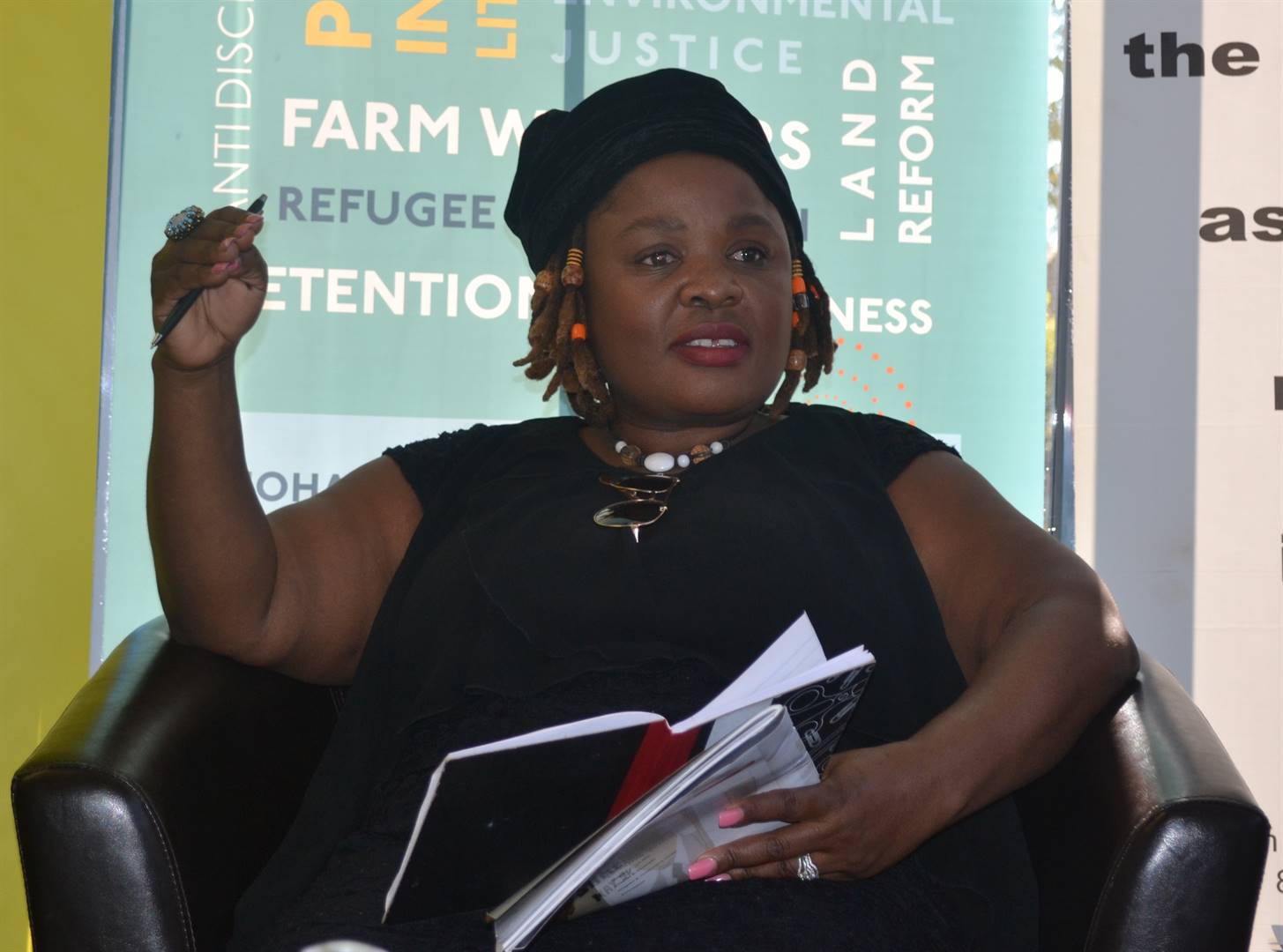
Politicians and those in leadership positions have constantly used foreign nationals and the issues of migration as a scapegoat to avoid accountability and to get ahead during election season.
These were the sentiments expressed by panellists during a discussion on the social issues of xenophobia and migration in South Africa at the National Electronic Media Institute of South Africa offices in Parktown on Thursday.
“Foreign nationals are used as scapegoats for what is happening in our country. Foreign nationals are not responsible for the poverty faced by our people, the government is and our government is not being held accountable,” said human rights activist Sharon Ekambaram.
Representatives from organisations such as the African Centre for Migration and Society, Treatment Action Campaign and Sonke Gender Justice concurred with the sentiment that: “We must take responsibility as South Africans for our behaviour and the fact that we are xenophobic.”
For her part, Ekambaram said politicians and more so the ruling party had the power to address the problems in the country.
“2008 happened; more than 60 people died. For me it goes back to the government. They have to show leadership and be categorical about the problems in our country and what the causes are and how they will be resolved,” she said.
“But the scapegoating comes to hide away the fact that they [government] are not addressing and implementing their policies that they have been given the power to implement and the foreign nationals are placed in the middle of all this and blamed for the failures of the government.”
Ekambaram told City Press that the spate of xenophobic attacks increases during election seasons because of promises made by politicians.
“It is all to pull the wool over people’s eyes. To lie to them and make promises that they can’t keep – “we will get rid of foreign nationals then you [South Africana] will get jobs,” she said”
She added: Those broad sweeping statements by those in power, that put the blame on foreign immigrants for what is wrong in South Africa, are dangerous and misleading.”
Ekambaram’s account relates to incidents in which political figures including the Democratic Alliance’s Herman Mashaba have come under fire for making allegedly reckless statements about foreigners.
Mashaba, who is the mayor of Johannesburg, has been quoted saying: “Foreigners‚ whether legal or illegal‚ are not the responsibility of the city” and “the city of Johannesburg will only provide accommodation exclusively to South Africans”.
An address made by Zulu King Goodwill Zwelithini to Pongolo community members during a moral regeneration event in 2015 was also blamed for the wave of xenophobic attacks that transpired in the same year. He said: “We are requesting those who come from outside to please go back to their countries.
"The fact that there were countries that played a role in the country’s struggle for liberation should not be used as an excuse to create a situation where foreigners are allowed to inconvenience locals.”
The national chairperson of the Treatment Action Campaign, Sibongile Tshabalala, said she could not understand why South Africans thought they were better than the rest of Africa.
“The fact that people will be able to freely vote next week is because of a concerted effort by all Africans. Sacrifices were made by other countries for the freedom of this country [South Africa] but now they are seen as ‘others’,” she said.
Tshabalala went on to explain how the use of foreign nationals as scapegoats was a way of shifting blame.
“Every government failure including the crime faced by the country, poor service delivery and lack of adequate housing is always used as a way of blaming immigrants,” she said.
“We are a corrupt nation and foreign nationals are footing the bill for our government’s failures.”
Labour and migration specialist and researcher fellow at the African Centre for Migration and Society, Janet Munakwame, echoed this sentiment and said political parties were hypocritical.
“The ANC itself knows very well the roles played by foreign nationals in this country. The very same city that people boast about [Johannesburg] was built by the very same people the government is trying to kick out of the country,” she said.
“Why do we only start to talk about these things around election time? About how the city of Johannesburg is overcrowded? But we forget that we have undocumented South Africans coming from other parts of the country to seek better opportunities in this city. So why is the blame on foreign nationals? Where are the statistics?”
For Jean-Claude Kazaku, who is a member of Sonke Gender Justice and a legal foreign national from the Democratic Republic of Congo, the fact that all foreign nationals were painted with the same brush did not sit well with him.
“As soon as people speak of a foreign national, whether one is legal or illegal, they immediately assume we are all criminals or dirty. Not all of us are like that, just as it is with South Africans,” he said.
Kazaku, who has been living in the country since 2007, added: “We as foreigners are an easy and vulnerable target for politicians who in turn make us targets for South African citizens who listen to their leaders. We are not the problem, if people cannot fight or get rid of corruption, we cannot be held responsible for that.”
Since the xenophobic attacks of 2008 that left more than 60 people dead, these acts of violence on foreign nationals have not subsided.
As recently as last month, incidents of xenophobia were reported in parts of Durban in Kwazulu-Natal and Limpopo – where property and goods were looted and damaged and at least two people were killed during the violence.
President Cyril Ramaphosa condemned the violence against foreign nationals and called on law enforcement agencies and law-abiding citizens to identify perpetrators and bring them to book.
“There can be no justification for criminality and if communities are disaffected for any reason, grievances must be raised with government and must be done within the confines of the law,” Ramaphosa said.




 Publications
Publications
 Partners
Partners











